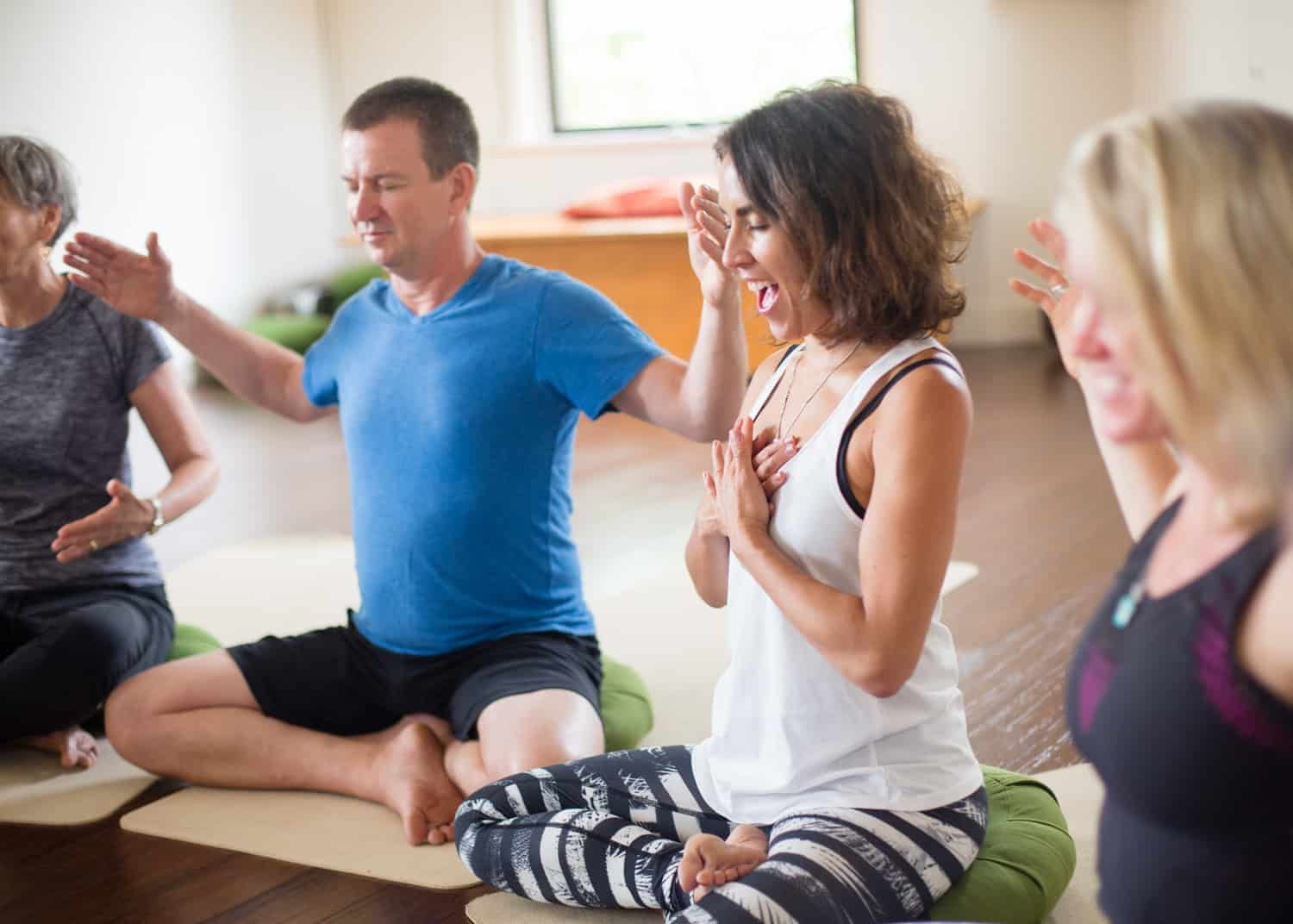Does Yoga improve your mental health?

Michael de Manincor’s PhD research says yes!
The Facts
In today’s society mental health concerns are becoming more and more prolific.
In 2011-12, it was estimated that three million people in Australia (13.6% of the adult population) had a mental health condition, an increase from 11.2% in 2007-08, and 9.6% in 2001 (Australian Health Report, ABS, 2012). And, there are many more people who experience some form of anxiety that is not diagnosed or reported.
We may experience a mental health concern ourselves, or know a loved one who is.
What’s the treatment for mental health?
In Australia and other developed countries, medical & psychological treatments are the most common form of treatment for most mental health conditions. Medical treatments include a range of pharmaceutical medications, and the most commonly used form of psychological treatments is Cognitive Behaviour Therapy (CBT).
Whilst there is extensive medical research on the effectiveness of these treatments, there are questions about their overall effectiveness, side effects, cost effectiveness, individual choice, and access to services, compliance, and ethics.
Yoga is becoming more recognised as an intervention for mental health concerns, particularly for depression and anxiety disorders, and there is growing scientific evidence to show this.
In my own PhD research, we conducted a clinical trial to evaluate the effectiveness of individualised yoga for reducing depression and anxiety and improving overall mental health and well-being. We gave a personalised yoga practice to over 100 people who were experiencing depression or anxiety. The results were outstanding!
We found that overall measures of depression went down by 36%, anxiety went down by 26%, psychological distress went down by 33%, resilience increased by 10%, and overall mental health improved by 19%.
There is no one-size-fits-all
These are significant results which demonstrate mental health benefits of a personalised yoga practice.
There is no “one-size-fits-all”. Each person was given a personalised yoga practice that was suitable for their individual needs and abilities. We also need to be aware there are some things in yoga that may not be helpful for everyone, especially in the area of mental health. For example, some of techniques used to help people with depression, such as kapalabhati (rapid breathing) might actually increase feelings of anxiety. And techniques to help reduce anxiety, such as long exhale or slower breath-centred movements, my not be helpful for depression.
The point is – you can’t just go into a general yoga class, and hope for the best. Practices need to be more tailored to individual needs.
Having a teacher who knows how to design personalised yoga practices, may be able to assist us in developing a yoga practice that is suitable for our individual needs, and can have significant and sustainable benefits in managing mental health and improving well-being.
Written by Michael de Manincor BA (Hons), Grad Dip Ed, M Psych, PhD
If you would like a copy of the published results of Michael’s clinical trial research, please email us reception@yogainstitute.com.au
Join us to learn more:
Yoga Teacher Training Information Session
Date: Saturday 10th November 2018
Location: The Yoga Institute Sydney
Facilitators: Michael de Manincor
More info and book your place